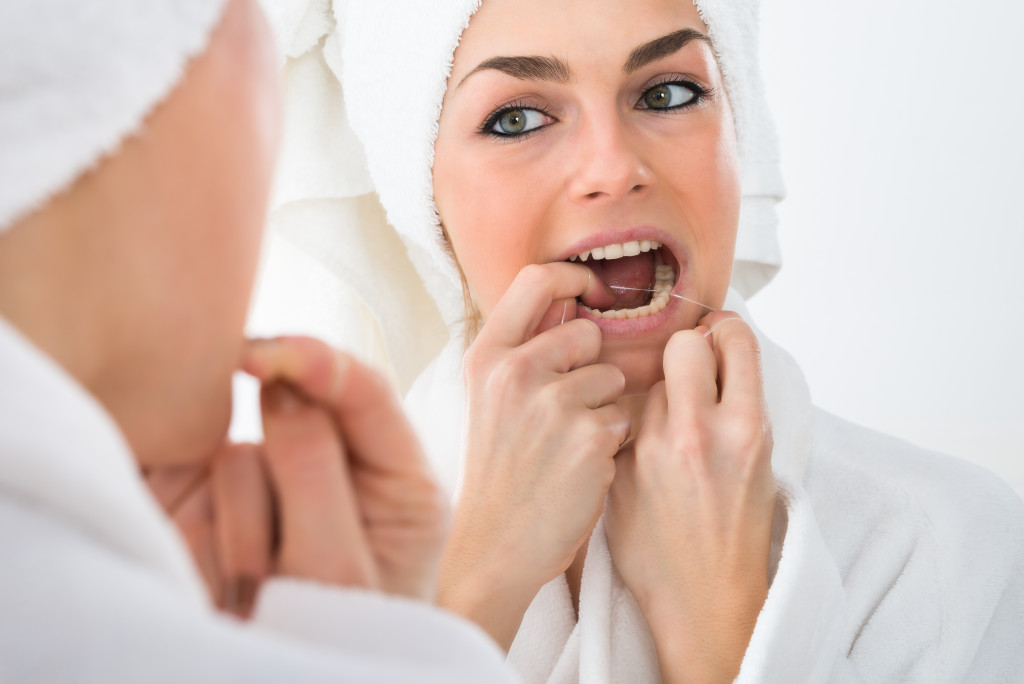- Proper oral hygiene is critical for preventing gum disease, tooth decay, bad breath, and other medical issues.
- Poor dental health can lead to self-esteem issues, cognitive decline, stroke, and dementia.
- Adequate dental hygiene includes brushing twice daily for two minutes with a soft-bristled toothbrush, flossing once daily with waxed or unwaxed floss, using an antiseptic mouthwash approved by the ADA, and visiting the dentist regularly.
- Eating foods rich in calcium, phosphorus, and vitamins A & C while limiting sugar intake helps keep teeth strong and healthy; drinking water washes away bacteria and balances acid levels in the mouth.
Dental health is a critical part of overall health and well-being. People need to understand the importance of maintaining optimal dental hygiene. Poor dental health can lead to significant problems, including gum disease, tooth decay, bad breath, and even heart disease.
Statistics from the Centers for Disease Control and Prevention (CDC) show that almost half of all Americans aged 30 or older have gum disease—an infection caused by bacteria that don’t get removed with regular brushing and flossing. In addition, approximately one-quarter of American adults aged 65 or older are missing all of their teeth due to tooth decay or periodontal disease.
The effects of poor dental health go beyond just physical discomfort. Studies have found a correlation between the number of decayed teeth in an individual’s mouth and their self-esteem. Those with more cavities have been shown to have lower self-esteem than those without them, which can lead to psychological issues such as depression and anxiety. Furthermore, poor oral hygiene has been linked to cognitive decline in older adults and an increased risk for stroke, dementia, and other cardiovascular diseases.
It is given that dental health should be a priority. However, you might not know the ins and outs of proper dental hygiene. Here are a few tips to help you:
Adequate Way of Dental Hygiene
Learning the proper way of dental hygiene habits is vital for promoting overall health and well-being. Good oral hygiene habits help to prevent gum disease, tooth decay, bad breath, and other medical issues associated with poor dental care. Doing them without thinking can be counterproductive, so it’s essential to understand the correct ways of brushing, flossing, and using mouthwash.
Brushing

Brushing teeth should be done twice a day for two minutes each time. A soft-bristled toothbrush should be used with gentle circular motions to clean the tooth’s surface and along the gum line. Don’t forget to brush your tongue too!
Flossing
Flossing once daily removes plaque and food particles between teeth that cannot be reached by brushing alone. Use either waxed or unwaxed floss in a gentle sawing motion to clean below the gum line. Be sure not to floss too aggressively, as this can lead to inflammation of the gums.
Using Mouthwash
Swishing with an antiseptic mouthwash helps reduce bacteria that leads to plaque buildup and bad breath. Make sure to use one approved by the American Dental Association (ADA) for its effectiveness in killing germs associated with cavities and gum disease. Swish for at least 30 seconds before spitting out twice daily for best results.
Regular Dental Visits
Visiting your dentist regularly is essential for maintaining good oral health — especially as you age — because some problems may only be detectable during a professional examination or cleaning your teeth and gums. Most dentists recommend visiting at least twice a year; however, those with more severe conditions might need more frequent visits depending on their condition and progress toward improved oral health.
Proper Nutrition for Dental Health
Nutrition plays a vital role in promoting good dental health. Eating foods rich in calcium, phosphorus, and vitamins A and C can help keep teeth strong and healthy. Additionally, limiting sugar intake can reduce the risk of cavities and tooth decay.
Sugary snacks like candy and soda not only contain a large amount of sugar but also tend to be sticky and stay on the surface of the teeth, making them more prone to cavities. Instead, opt for crunchy fruits and vegetables like apples or carrots, as they help clean plaque away from your mouth when you eat them.
In addition to eating healthy snacks, drinking plenty of water is essential for dental health. Water helps wash away bacteria that accumulate on teeth throughout the day. It also helps balance out acid levels in the mouth, which can contribute to decay if left unchecked. Furthermore, staying hydrated helps saliva production, which naturally cleanses food particles from your mouth during meals.
It’s also important to be mindful of how you consume certain foods, as this affects your dental health too. For example, acidic foods like citrus fruits can erode the enamel on your teeth if consumed in excess, so it’s best to limit acidic food intake or wait an hour before brushing your teeth after eating them so that the enamel has time to harden again.
Getting Dental Procedures Immediately

Unfortunately, poor dental health can have severe consequences if left untreated. If you are experiencing pain, changes in tooth color, bleeding gums, or other issues with your teeth and gums, it’s essential to get these issues treated as soon as possible. Early diagnosis and intervention can help prevent more serious dental problems like gum disease and tooth loss from developing down the road.
For those who need more advanced dental treatments, procedures like full-mouth dental implant procedures may be recommended. These involve replacing all teeth in a person’s mouth with artificial teeth that look and function like natural ones. While these procedures are typically expensive, they can help improve overall oral health and quality of life for those affected by severe tooth loss or decay.
Final Thoughts
Maintaining good dental health is critical for overall wellness. Understanding proper brushing, flossing, and mouthwash techniques can help prevent dental issues from popping up. Eating healthy snacks, drinking plenty of water, visiting your dentist regularly, and getting necessary procedures done promptly are all essential steps that you should take to ensure optimal dental health.


